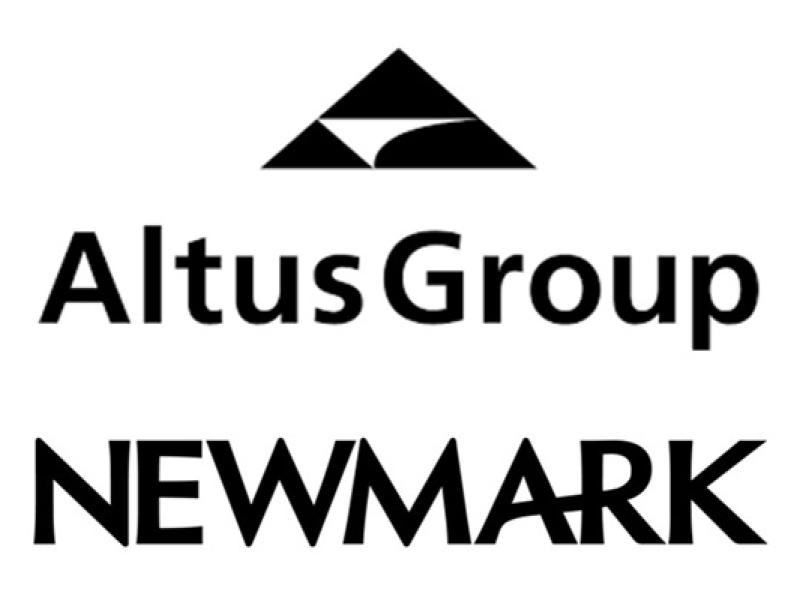
Jaime McKenna is the managing director and group head of real estate for Fengate Asset Management. (Courtesy Fengate)
Getting a grip on property valuations has been difficult since the onset of the pandemic, and a Feb. 23 online panel as part of the annual RealCapital conference focused on those challenges.
Aaron Cameron, assistant vice-president of commercial origination for First National Financial LP, said the Canada Mortgage and Housing Corporation (CMHC) will continue its stable underwriting approach for insured products, which is good for lenders and apartment owners.
In other sectors, lenders are trusting their internal valuation approaches as much as appraisals. While appraisals have come down in cost, Cameron believes that could also be impacting quality, noting some firms may be rushing through the process.
“It’s tough to get a sense of where rents are going in every asset class right now, maybe save and except for industrial,” he said, noting industrial rents have continued to rise.
“Transaction comps are often from jurisdictions and locations that may not necessarily be truly comparable. They may be 18 to 24 months old, so you can’t put a lot of weight in them.”
Higher equity, lower leverage
Scott MacPherson, Vancouver-based managing director of Cushman & Wakefield’s Equity, Debt and Structured Finance Group, said lenders are looking for much more cash equity in development deals. Thus, some companies may need to bring in equity partners to finance projects.
MacPherson said his firm isn’t looking too closely at capitalization rates when underwriting for clients, but is more focused on weighted average cost of capital and making sure there’s a positive yield above that cost.
Pre-pandemic deals for commercial properties would often be 70 per cent leveraged, but that’s down to 55 to 65 per cent in most cases, according to Cameron.
He said no one is going above 50 or 55 per cent leverage for office and retail assets in Alberta, if bids are being made at all, because they’re not comfortable with valuations and the province’s challenging economic conditions.
Land prices
“Land is what people are going to flock to in a situation of crisis, because it’s what you can hold and get over the short-term impacts,” said Fengate Asset Management managing director and group head of real estate Jaime McKenna.
MacPherson said peak prices for land entitled for condominium development in Vancouver have fallen off from more than $500 per square foot to the mid-$300s.
“With revenue dropping off for absorption, and hard costs essentially staying at par with where they were in 2019, it’s difficult to make up that difference. The residual value of the land has to shift. That’s the only way the economics work.”
Toronto multifamily land values haven’t been as hard-hit as Vancouver, but it’s probably close behind for the same reasons, according to MacPherson.
In Montreal, condo land prices haven’t been as affected because the city didn’t have as much existing product, MacPherson said. He expects more multifamily development there and in other larger Quebec cities.
MacPherson said industrial land across the country, especially in Vancouver, has become more expensive.
McKenna said Fengate is looking at apartment, condo and industrial development land. It’s exploring more outside of urban cores, where pricing has generally held but there are more favourable terms and longer closing periods.
Fengate is also considering acquiring land to change its use, McKenna said, and will pursue unentitled land if it has a good grasp of where the property could be in five years.

Scott MacPherson, managing director of Cushman & Wakefield’s Equity, Debt and Structured Finance Group. (Courtesy Cushman & Wakefield)
Development, retail concerns
While 2020 was definitely a down year for bricks-and-mortar retailers and much of the real estate they occupy, MacPherson said grocery-anchored sites and those well-located with stable national tenants should still be okay through the pandemic.
Challenges will remain with high-street retail and big-box locations, and MacPherson said a lot of creativity and equity will be needed to repurpose locations that continue to struggle or fail to survive.
Fengate’s small retail portfolio has held up well thanks to good credit tenants. It’s looking at retail intensification projects where properties are complementary to residential plays.
Commercial space comprises about five per cent of Killam Apartment REIT’s (KMP-UN-T) portfolio and it has been acquiring assets with potential redevelopment opportunities, according to chief financial officer Dale Noseworthy.
“The biggest challenge right now is exit strategies and what you need to underwrite at,” Cameron said of development pro formas.
Rising costs are always a risk, so Cameron said you need to make sure you’re partnering with developers that have the liquidity and wherewithal to manage that risk.
MacPherson said he is having difficult and sometimes pessimistic discussions with developers as his firm looks at things harder and more realistically. It is seeking to protect the investors it brings to the table, as well as the sponsors’ leading projects.
Fengate Asset Management
McKenna said the apartments Fengate currently holds interests in are under development. Rents have held up outside of the Greater Toronto Area, which has experienced downward pressure, but she believes they’ll recover before its apartments are ready to be leased.
Industrial properties have been a hot acquisition target and rental growth has driven up values. McKenna is “a little bit concerned about the Amazon effect” and potential contraction of the millions of square feet of industrial space it is occupying and having built.
“We’re paying more attention to the 100,000- to 200,000-square-foot floor plates versus the mega-bombers,” said McKenna. She believes there’s a solid future in the industrial asset class as long as expectations remain realistic.
Fengate’s suburban office locations have experienced some rent and value compression due to longer periods of time between lease expiries and re-leasing, according to McKenna.
Student housing valuations were hit hard because buildings are at 20 to 50 per cent occupancy due to school closures and COVID-19 precautions. The seniors sector is also affected.
“Our seniors portfolio definitely took a contraction in value this year because we experienced a significant increase in vacancies,” said McKenna. “We’re in the low to mid-80s right now and we know it’s going to take well over a year for that to burn off.”
McKenna said all of Fengate’s 2020 acquisitions were off-market and differed in structure, with deals often being less about pricing and more about terms.
Killam Apartment REIT
Killam had its second-biggest year for acquisitions in 2020, though Noseworthy said much of its activity occurred before March. The majority of its deals were off-market.
She hasn’t seen big changes in apartment underwriting in the past year and rents have generally held up well across Canada.
Killam primarily uses CMHC-insured financing and has good covenants and solid long-term relationships with other supportive lenders. Its projects go to 60 to 65 per cent debt and don’t maximize loan availability, according to Noseworthy.
“There are a lot of buyers out there and there are transactions happening,” said Noseworthy.
Killam has expanded its multifamily repositioning program and has been able to increase rents 25 per cent by investing an average of about $25,000 per unit. Noseworthy said it’s also seeing “really healthy” mark-to-market spreads on the turnover of multifamily units in almost every city.
Killam has six projects underway and 10 years worth of development in its pipeline.
“We’re targeting yield of about five per cent, but we want to see a 100- to 150-basis point spread in terms of the value we’re creating,” said Noseworthy.
Killam is based in Halifax, which is also its biggest market and enjoying a large appetite for housing. Noseworthy said the remote working trend is prompting more people to move to the Nova Scotia capital, whose apartment sector also benefits from having universities close to the downtown.
Killam just has one multifamily building in downtown Toronto, and Noseworthy said it’s doing well. The company is also bullish on, and increasing its presence in, the Southwestern Ontario cities of Cambridge, Kitchener and Waterloo.
“Suburban Alberta, for our assets, is performing quite well,” said Noseworthy. “The downtown core is where the challenge is.
“There are a lot of moving parts and every market and sub-market is moving differently.”











